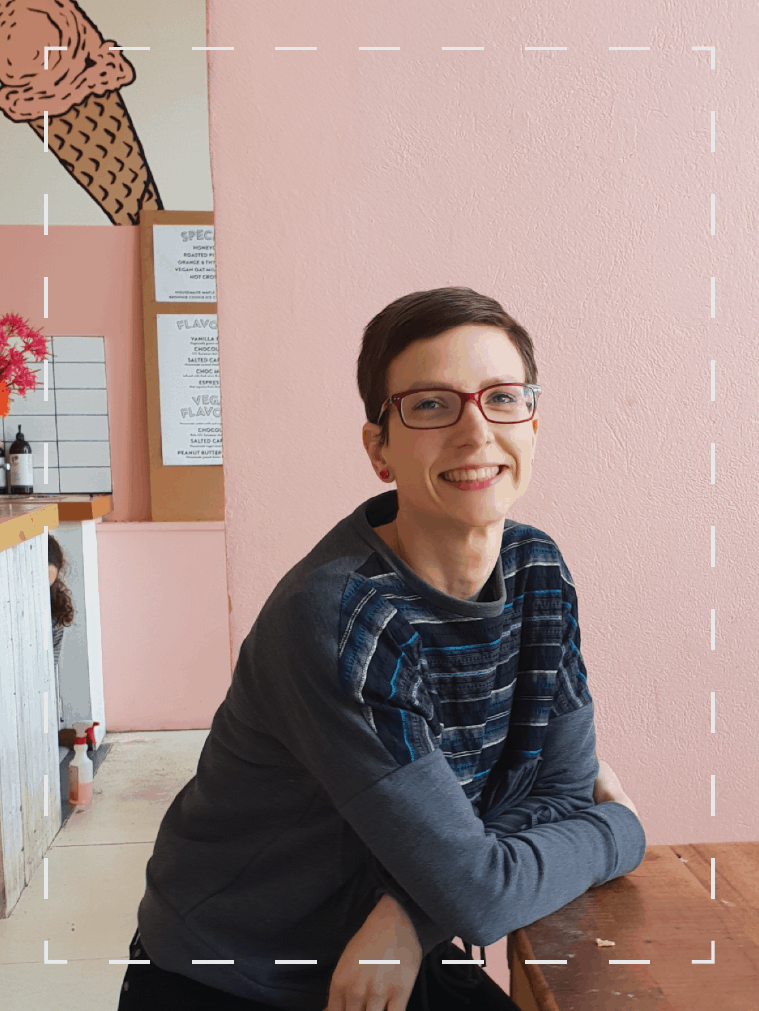
How to make your home environment adapt to your business
Adapting your home environment (and your calendar) to suit your goals is a major advantage. You’ll be able to tick off projects and tasks in a way that suits you and the method you’re using to get there. If your home environment doubles as your business HQ, then the importance triples!
I wanted to write about working at home since the beginning of the year. It’s something I do for my own business and have been doing it full-time for about two years… And now, in our COVID-19 “abnormal normal”, it’s developed even more relevance. There are those who have never worked from home who are suddenly trying to re-frame workspace in their mind. They don’t have the physical separation of leaving home to go to work or arriving home from work. Many have not given their home much thought in relation to how it impacts their work but that is changing.
I don’t want to fill your world with more “be productive at home!”, “don’t waste your time!”, “if you don’t get X-Y-and-Z done while you’re at home, you’re failing at Pandemic Survival!” – that’s not what florandorder is about. What I want to do is give you the tools to strengthen how you can feel better about moving your work or business goals from an outside location, into your home.
Organise your environment
Marie Kondo, Decluttering Expert, says “by eliminating excess visual information that doesn’t inspire joy, you can make your space much more peaceful and comfortable.”
I certainly know the truth of this. Clutter is one of the biggest time wasters that people confront. It distracts us with visual mess that demands attention on a subconscious level. The more clutter you have, the more there is to clean and maintain. Really, it’s just more time wasted.
Not only does a cluttered space consume your energy, it robs you of health and satisfaction. Your productivity is impacted negatively and you’re not sparking at 100%. If you’re already feeling the effects of information overload from other areas of your life, eliminating clutter is an easy win.
The more you pare back on possessions, the more space and freedom becomes available in your home. By simplifying all that you have in your house, you get back the hours wasted looking for things. You also get more headspace. You end up with more control over your space, areas to create work zones and relax zones. Being able to focus, without the visual assault of clutter, is a major productivity upper. It fuels the drive to do great work.
Sometimes, at a client’s home, we walk through their space and they rush to say about any mess: “I’m not like this at work! I’m super tidy and always on time! This pile of folders… I’m in the middle of organising them!” This is an example of how external pressure impacts our habits. It propels people to be tidy, be on time, and meet deadlines. No one wants to be THAT person who lets down the team. We aim to present our best selves through our actions. So why not continue that at home?
Design your environment for success
Once you’ve decluttered, the designing of your environment begins. This is where we designate a home for each item and its either in use, or in its home. Habits like this save us time and energy. Two vital resources that allow us to focus on the more important goals in life.
A friend once said: “I think a lot of people don’t have a clear understanding of how decluttering and organising will improve their life. They’ve developed a bad habit of cluttering without fully noticing, or they simply haven’t experienced the ‘joy’ yet.”
Experiencing the joy of beneficial habits is where we can energize ourselves. By creating habits cleverly cued by our designed environment, we can support the vision we have of our business, ourselves and our goals. As habits expert James Clear says in his book Atomic Habits, “Environment design allows you to take back control and become the architect of your life. Creating obvious visual cues can draw your attention toward a desired habit. Make your environment where you live and work support your actions to do certain things. Make it easy to read a book by making the books obvious. Make it easy to take your vitamins, by putting them somewhere prominent.”
When I started my business and worked partly from home, I would often work based at the kitchen table. Finished for the day, I’d switch off by packing my work things in a basket (in time for my housemates to come home and use the kitchen). Such a clear division between work time and the beginning of personal time was necessary for me to switch off. Once I moved into a bigger room that allowed for both office space and bedroom space, this habit served me well. Instead of a basket though, I use a room divider/screen to separate my zones.
Some clients, new to working from home, try to do everything from one spot. What we want to design is a structure centered around developing habits. A structure that assists them in stepping into a particular headspace. It makes it easier for their brain to turn on or off when it recognises “time to work” distinct from “time to relax”.
I delivered a workshop a couple of years ago focusing on how students can transform their bedroom into a space that’s organised. I’ll share a little below:
Zones divide a room into activity centres. By keeping an activity limited to one area that activity defines and gives that area a certain energy. That energy evokes an intention that helps you to concentrate.
And that concentration makes things much easier because all you need related to that activity is within arm’s reach. As well as being easy to put things back in “their” place, their home – helping you to keep organised.
Try and keep your bed only for sleeping. No studying, working, no watching TV, etc., a place where you merely sleep. The brain really embraces routine, so too many things in one spot confuses, making it hard for you to switch gears.
BUT if you don’t have the luxury of a lounge chair for TV watching, or your room is tiny here’s a trick! For a bed larger than a single, use ONE side of it for hanging out and the other for sleeping. Same idea for a single bed, use one end for hanging out and the other for sleeping. It is surprising how that bit of distinction can have an effect.
So the takeaway is each spot of a room or house should have a primary use. This way focus comes automatically when sitting at your work desk. Or relaxation comes easily when you sit in your reading for pleasure chair.
Consistency is the key to business success. The backbone of consistency is stable and predictable behaviours. Having your environment back you up, can only help achieve this primary goal.
Proactive = future benefits
A friend once mentioned that their partner had this frustrating tendency to leave things out because they were going to use it later. Unfortunately, “later” often didn’t arrive so the place looked like a graveyard of unfinished tasks.
Chances are, everything in a house and office will be used at a later date – otherwise there’d be very little point in owning it to begin with. Running with this train of thought, if someone was to leave every item out for ‘later’, eventually everything would be out and getting in the way of current actions.
Finish the cycle
If you do something, complete the cycle. For example, if you have a tea break, finishing the cycle would be putting the cup in the dishwasher (or wash it by hand). If you were mailing a package, you’d take out your supplies, assemble the package and then put the supplies back in place ready for the next mail out. Done!
Finishing the cycle prepares the item or space for next time at the end of the current time. The purpose of finishing the cycle is to make the next action step easy. Think of it as being proactively lazy rather than being a ‘neat freak’.
The word ‘later’
Remove it from your vocabulary. Like that saying ‘tomorrow never comes’ – it’s often true with ‘later’. By labeling an action for ‘later’, you are delaying your decision making. And instead saying yes to a whole lot of clutter creation and disorganisation. If something takes between 2 and 5 minutes, just do it now.
My Dad summed this up the other day while we were discussing what in-progress projects he has. A project is rather like a bucket you are trying to fill with water. If it has a lot of tiny holes and distractions in it, it takes a lot longer to fill it. The bigger the holes, the longer it takes to complete the task.
Thinking ahead regarding human needs
We all have human things to do that keep our lives ticking over.
If the focus is on ‘gotta get that done’, annoyance can dominate. But what if we shift it? Instead allow beauty and the self-kindness, of completing somewhat mundane actions, shine.
Laundry gives us clean sheets, fresh towels and clothing that doesn’t smell. Cleaning gives us floors that don’t crunch under our feet, dust free surfaces, welcoming rooms, windows we can see through. These make our homes liveable and healthier.
Shopping gives us a supply of loo rolls, replenished tissue boxes, the ability to continue feeding ourselves. Things that are rarely celebrated (until recently… anyone else looking at their loo rolls differently? Kind of like they’re priceless assets?) but yet make life so comfortable and so much more enjoyable. Activities (not chores!) help form the framework of our environments. It streamlines the support for our lives and our work.
Meal Planning
Take feeding ourselves as an example; having your kitchen organised and clutter free is one aspect of better supporting yourself. Having a meal planning routine is worth more than gold. Think about it once and have the plan work for you throughout the rest of the week.
I’ve helped clients develop meal planning routines. Some are busy professionals who don’t want to think about lunch during the day or dinner at the end of it. They want to have a plan in place before their stomachs start to rumble and they succumb to UberEats.
One of my client’s food spending showed that on an average week, they spent $150 on takeout. How many hours have they worked to pay for their takeout? By developing and establishing a meal planning routine with positive cooking and food preparation habits is life changing. By putting these in place for a week, expenditure on meals gets exceptionally lowered. Your savings get put towards another goal, such as paying off credit card debt. Not only did meal planning encourage healthier eating, it also tackles the stress of catching up with bills.
Want help establishing a meal planning routine? I’ve developed an e-book on the topic (launching next week!). In it, I address the actual organising foundations in meal planning programs, making it simple and fun to maintain.
We often forget that feeding ourelves healthy and beautiful food is truly an act of self-respect. It’s an opportunity to see food shopping as self-care, and at the moment, one of our few interactions with the outside world!
Pulling it all together
The more you can make a habit work for you, the more your brain is able to focus on other things. That means more mental space for ideas, efforts, and energy that can be better spent on business delivery and development.

Talk soon,
Christie







